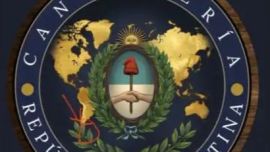Brazil kicks-off the Copa América that almost never was tomorrow, on home soil for the second time in three years with minnows Venezuela as their opponents in a tournament already dominated by issues off the pitch.
After an often absurd odyssey, the 2020 Copa América kicks off a year late, in a different country and with fewer teams – and, most perplexingly, in the midst of a Covid-19 pandemic raging even more fiercely than it was 12 months ago when the health situation was deemed too dangerous to play.
Co-hosts Argentina and Colombia were stripped of their rights at the 11th hour, due mostly to the deteriorating pandemic situations in those countries but also deadly social unrest in the latter.
In stepped Brazil, supported by the country's far-right President Jair Bolsonaro, who has made a name for himself downplaying the seriousness of the novel coronavirus.
Two years after the Seleçao won a ninth title, also on home soil, Brazil are hosting the tournament even though the country has the world's second highest Covid-19 death toll after the United States, with 480,000 fatalities.
Even the reigning champions' players don't want to play.
"We are against organising the Copa América, but we will never say no to the Brazilian national team," the players said in a joint statement on social media earlier this week.
They also hit out at South American football's governing body CONMEBOL, saying they were "dissatisfied" with its handling of the tournament, adding a damning verdict that the organisation would be "inadequate."
Other players such as Albiceleste star Sergio Agüero and Luis Suárez of Uruguay have criticised the decision to go ahead with the tournament in Brazil.
'Insanity'
The problems faced by international football's oldest competition have been innumerous.
Originally slated to be a 12-team tournament including Asian federation guests Australia and Qatar, the schedule had to be reorganised after both pulled out in February as the new dates clashed with other regional commitments.
A second schedule reorganisation took place this month so Brazil could kick-off the tournament instead of Argentina.
Two major sponsors, Mastercard and beer giant Ambev pulled their brands from the tournament earlier this week, alongside another alcoholic beverage company, Diageo.
And the tournament had to survive a last-ditch attempt by the national metalworkers' union, the Socialist Party (PSB) and the Workers' Party (PT) of former president Luiz Inácio Lula da Silva to block it in the Supreme Court.
"It's impossible to describe the insanity of trying to hold an event of this magnitude here now," said Brazilian infectious disease specialist José David Urbaez.
The Supreme Court ruled in favour of the tournament, but told state governors and city mayors to do more to ensure "appropriate health protocols" are respected.
Organisers insist it will be safe, with no fans in the stadiums and the teams undergoing mandatory testing every 48 hours. Team movements will be restricted and they will travel to host cities aboard chartered flights. Argentina’s national side will remain at their base camp in Ezeiza, Buenos Aires Province, for the entirety of the tournament, flying into Brazil only for matches.
Plans to oblige all players to be vaccinated – which was supposed to have been enabled by the donation of 50,000 doses from Chinese state pharmaceutical company Sinovac – were abandoned as time ran out to ensure everyone could not only receive the jab but develop immunity.
Favourites?
What is usually a festival of colour and passion looks more like a headache – or an even worse ailment.
Led by star forward Neymar, who missed the 2019 tournament due to injury, Brazil are favourites to defend their title. The team is in fine form having begun qualifying for the 2022 World Cup in Qatar with six wins from six.
Lionel Messi will lead the Albiceleste as the six-time Ballon d'Or winner aims to finally break his trophy drought in top level international competition after three times before losing in the final. He's also lost a World Cup final with Argentina.
Uruguay will be hoping veteran forwards Luis Suárez and Edinson Cavani fire them to a record-extending 16th triumph.
No-one else has shown the kind of form that would suggest they could upset the odds.
Before the business end arrives the Copa will begin with an almost pointless group stage. The withdrawal of Australia and Qatar leaves two five-team groups in which the top four from each will qualify for the quarter-finals.
Far from a continental extravaganza, the 2021 Copa América runs the risk of being an embarrassment. That's provided it makes it to the end…
– TIMES/AFP























Comments